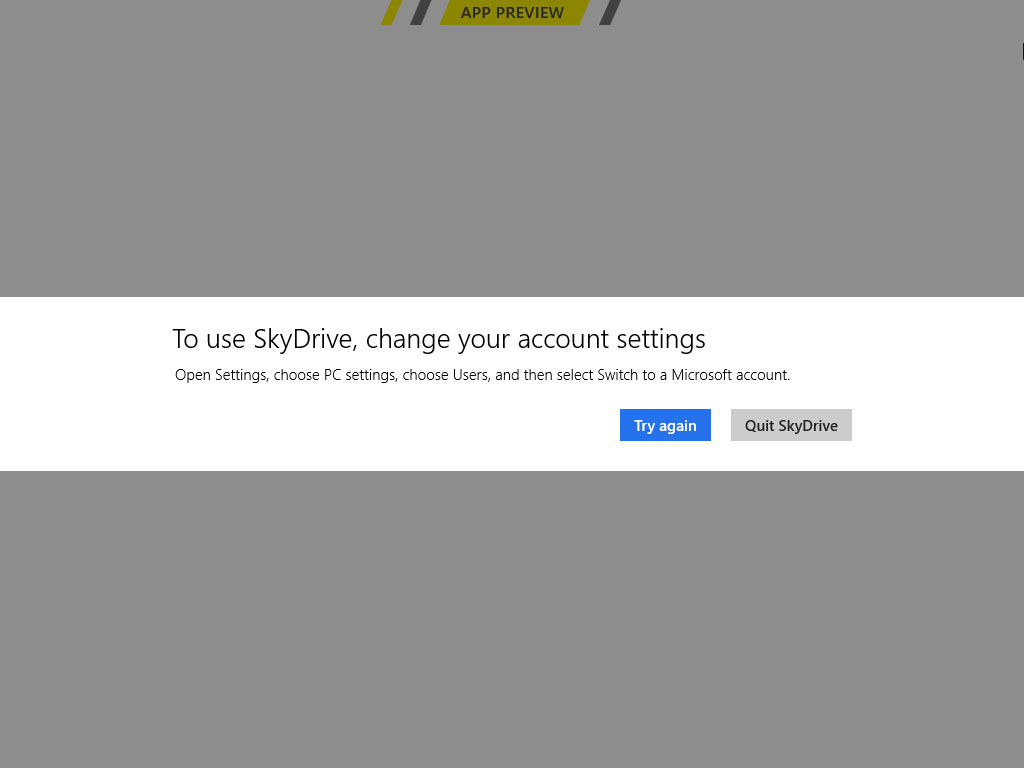Typically when Microsoft ships out a BETA they allow the testers access to all of the potential features of the OS. This means that the CPP version of Windows 8 is the Ultimate version having the best of the Home and Professions flavors. Why is this important? Well for companies that are thinking of using Windows 8, their IT managers will need to test it for compatibility with their networks. The new OS needs to be able to connect to their domain, email servers and other applications that they might be running. Here is the snag, after working with a Windows 8 device for several months we have discovered that the new platform is very Windows Live dependent. Many of the features such as Mail, Messaging, pictures, videos, and even music that are included in the MetroUI bundle require a live account.
Before you state that you can associate any email with a live account I want to point out that logging in with that account to your Windows 8 device will not get you access to domain resources. The SID Token (Security ID) will be generated and sent from Microsoft. Now the Domain Controllers on the network you are on. This means that you will have to run multiple accounts to use the features that Microsoft is trying to push.
So to use Skydrive, Mail, Videos, Music and a number of other features you much switch from your normal local account (which is required for access to shares etc.) to a Microsoft account. There is no option to logon with one locally to the app; you HAVE to logon to your system with this account or you do not gain access. This is an oversight on Microsoft’s part of enormous proportions.

Now I know some are going to argue that an IT manager would not want users to access these services on a business system, and to a certain extent you would be right. However, if this was (or is) Microsoft’s intent behind this then these apps should not be present when connected to a domain. It is also important to note that many companies now have their own cloud storage that they use for files. Microsoft would do well to allow corporate accounts to connect to these and not require a Microsoft account for use.
It seems that with Windows 8 (at least at this stage) Microsoft could be alienating their most important revenue stream. Still we do know that there will be multiple versions of Windows 8 some of which will be geared toward corporate needs. The issue now is; why are we not seeing some of these features now at a time when many companies could be making up their minds about Windows 8 for the desktop, the server and both x86/64 and ARM tablets. Perhaps Microsoft has gotten lost in its desire to see Windows Phone become more accepted. After all the MetroUI has its origins firmly entrenched in the UI for Windows Phone a mobile operating system that currently hold less than 3% of the mobile phone market share. Remember Microsoft has bet big on Nokia and their ability to bring Windows Phone back to relevance. The problem now is that with the release of Windows Phone 8 all of the existing Windows Phones could potentially be outdated and unable to run new apps that will be in the Windows Store. The going consensus is that Microsoft will not allow the upgrade. This will only serve to kill sales of phones like the newly launched Lumia 900 from Nokia.
Looking at Windows 8 (in all its forms) from a consumer perspective we see confusion which could turn to resistance to the OS. This is sad considering the possibilities that are clearly present in their move towards a more unified platform. What Microsoft needs to do now is sit down and figure out what identity they want Windows 8 to have, if they do not the platform will certainly have problems with market acceptance (no matter how good it might be).
Discuss this in our Forum



